Cultural Differences in France
Paris is a beautiful city, and it’s easy to see why so many people have fallen in love with the French capital. For some, however, not everything goes smoothly when they visit Paris for the first time. There’s an element of French culture shock, and it takes time to adjust to the culture and lifestyle in France.
I asked Sage – a fellow travel blogger and friend from the Midwest – about her first experiences as an American visiting France and the differences between French and American culture that surprised her most. Continue reading to learn about the ins and outs of French culture shock and discover her best tips to help you overcome it.
A Guest Post by Sage from Everyday Wanderer

There were many incredible benefits for an American girl attending an international school in Maastricht, the Netherlands, as a teenager. As a born and bred Parisian, my French instructor went above and beyond vocabulary, grammar, and pronunciation to teach us about her native tongue.
My favorite experiences were the opportunities to interact with native speakers and experience France in person. Our instructor coordinated monthly exchanges with a Belgian high school just across the border from us, and each school year, there were multiple opportunities to travel to France.
Even when you’ve been taught what to expect in a classroom, adjusting to a new environment in person can be jarring. These are some of the common experiences that can trigger French culture shock for Americans visiting Paris and France.
Cultural differences between the US and France
Dinner is Served Much Later
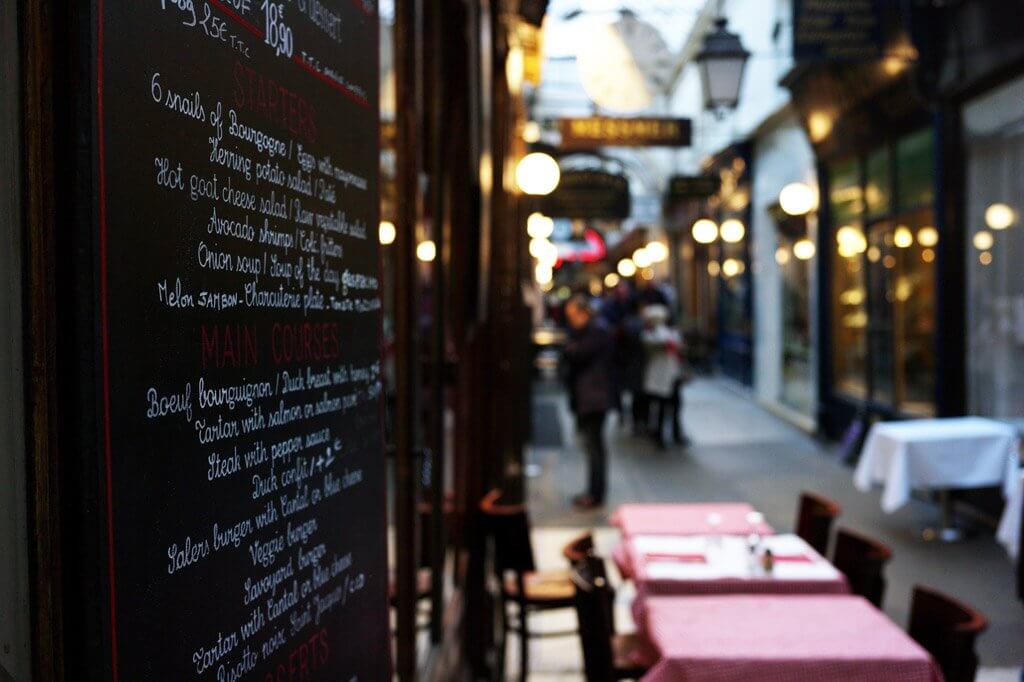
In the US, the typical American family sits down to dinner around 6:00 pm. Heck, I even know people who eat at 5:00 pm. But from Brittany to Bourgogne, the French eat dinner much later. Expect the last repas of the day to be served closer to 8:00 pm (until 9:30 pm in Paris).
Mealtime is a Bonding Experience
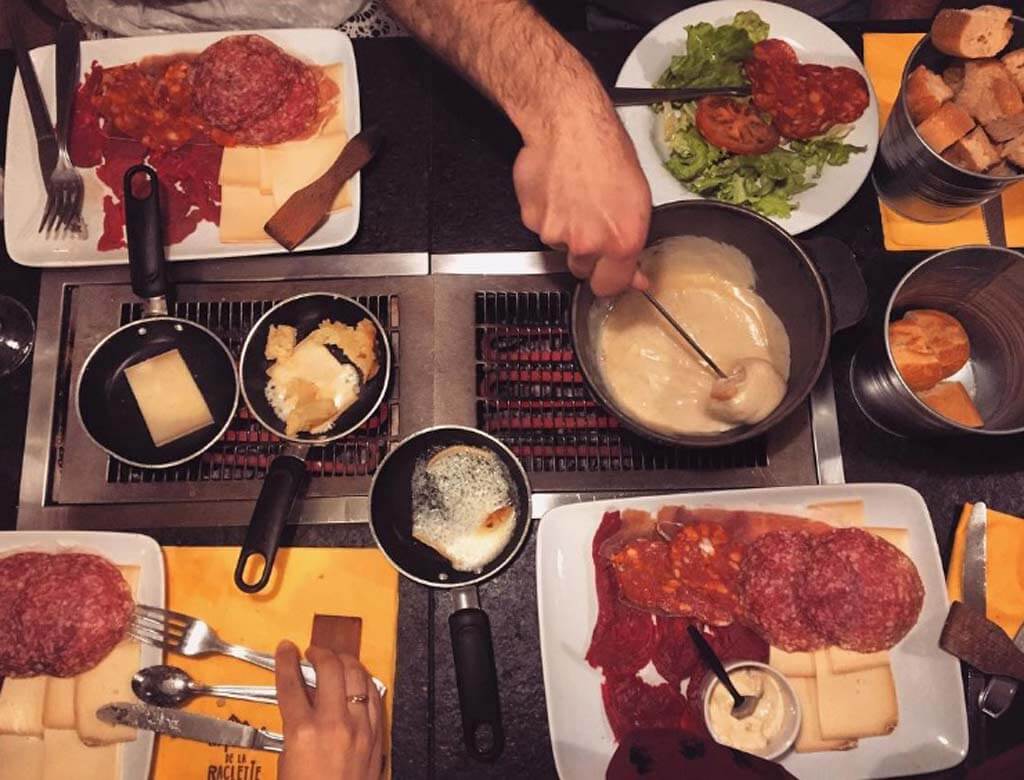
Even at elegant sit-down restaurants, people born and raised in the country that founded (and perfected) fast food, expect their meal to progress at a pretty quick clip. It typically takes about an hour for an American couple in Chicago to split an appetizer, enjoy a side salad, work their way through an entree, and wrap things up with a shared dessert.
But in France, meals take time, and it’s for all sorts of wonderful reasons.
From a culinary perspective, it’s important to bookend the meal with cocktails. Before the meal, you’ll want to enjoy an aperitif. This cocktail kicks things off with friendly chit-chat and light snacks. From Calvados (apple brandy from Normandy) to licorice-flavored Pastis, finish off a delightful dinner with a digestif.
But one of the main reasons French dinners take so long is that they are an important time to relax, socialize, and connect with those gathered around the table. I’ve had the opportunity to enjoy many French lunches and dinners at the home of French friends and colleagues, and I love this aspect of the meal even more than the amazing cuisine.
The French Don’t Snack Between Meals
In the United States, Americans often graze all day long. Kindergartners can’t make it through an hour-long soccer practice or Girl Scout meeting without a juice box and a chocolate chip chewy granola bar.
But this doesn’t fly in France.
For breakfast, expect a continental breakfast of coffee, tea, or hot chocolate paired with a fresh croissant or baguette with jam. You’ll be hungry for lunch, but it will be a filling meal that will tide you over until dinner. Yes, even if it’s not served until 8:00 pm.
Strikes are a Way of Life
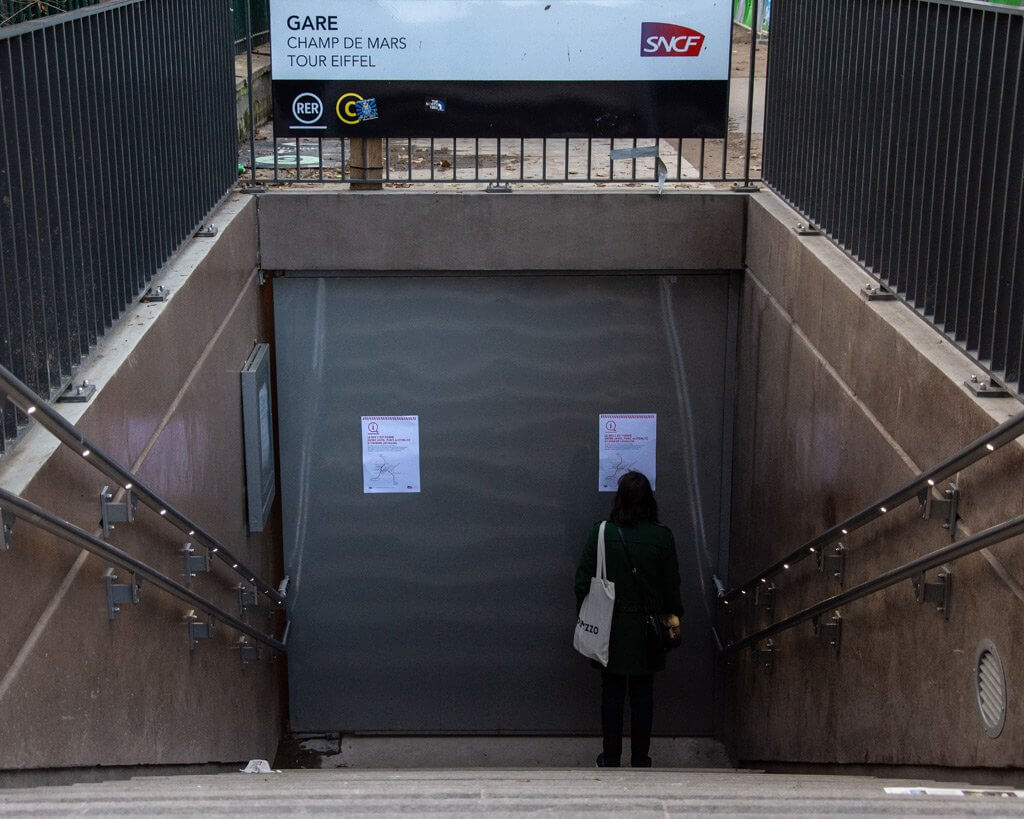
If you visit France for more than a week and don’t experience a transportation strike, go buy a lottery ticket, because you are definitely one of the lucky ones!
Worker strikes have curbed taxis, halted metro trains, and grounded airplanes as French taxi drivers, train conductors, and air traffic controllers have battled for higher wages, better retirement plans, and other benefits. And as you might imagine, limited to no public transportation in the world’s most visited country is an absolute nightmare for locals and travelers alike.
Perhaps it’s because Americans are so dependent on their cars, or perhaps it’s because it’s illegal for most transportation workers and all federal employees to strike in the US, but strikes are usually a source of culture shock for Americans visiting France.
Pedestrians NEVER Have the Right of Way in France
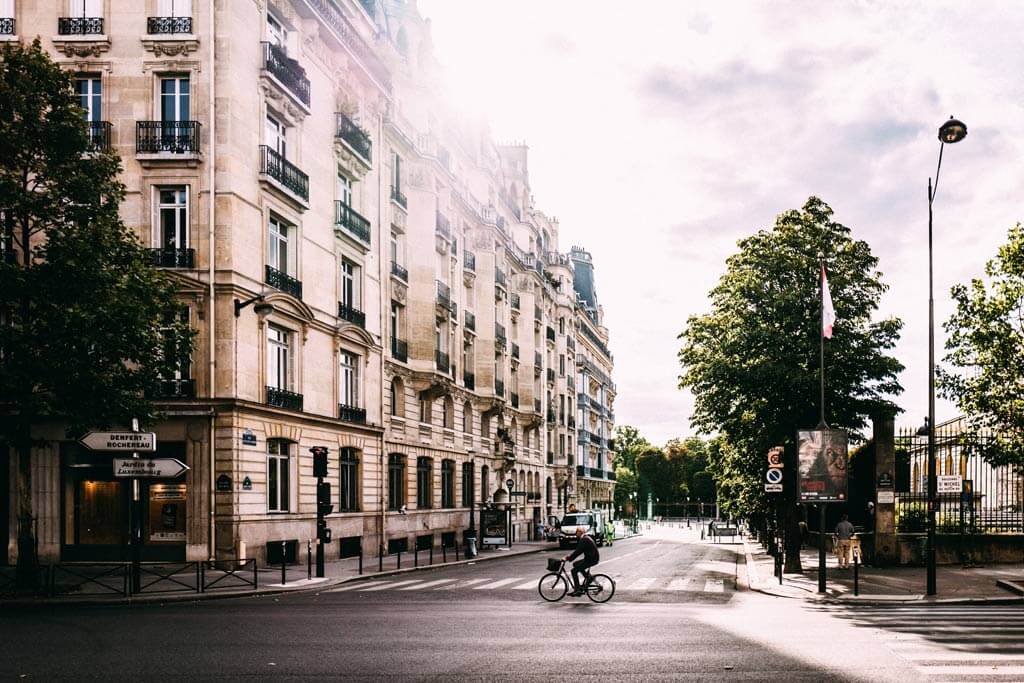
I write this point as an American who lives in the Midwest, where a car is required to travel anywhere and pedestrian crossings are largely decorative (because no one walks). While American motorists won’t immediately yield to pedestrians the second they step into the striped section of road (as is the law in other parts of Europe), they know they are liable if they strike a pedestrian with their car.
So it was quite a culture shock to realize that this is not the case in France. Regardless of what’s posted on street signs, if you are crossing the street in France, you’d better bow down to motorized traffic (or else).
Leave Your Yoga Pants (And Tennis Shoes) at the Gym

Americans love comfort and regularly wear yoga pants to everything but yoga class. It’s okay if you want to wear the Stars and Stripes across your chest, stretchy pants, and tennis shoes at home. But French men, women, and children are much more stylish, so manage culture shock by adding some simple chic to your comfort when you visit Paris.
Bof and Tant Pis
A few years ago, I watched an interview with Anderson Cooper. He described celebrating the holidays with his French partner, Benjamin Maisani, and how he’s mastered the fine art of the French bof, demonstrating its signature delivery with closed eyes and a small shoulder shrug.
While many Americans will be genuinely sympathetic about life’s bummers (or fake their sympathy very well), the French don’t have time for that. So if you break a fingernail, miss your train, or have your luggage stolen, expect a lot more shrugs than concern when you visit France.
A Lot Less Teeth
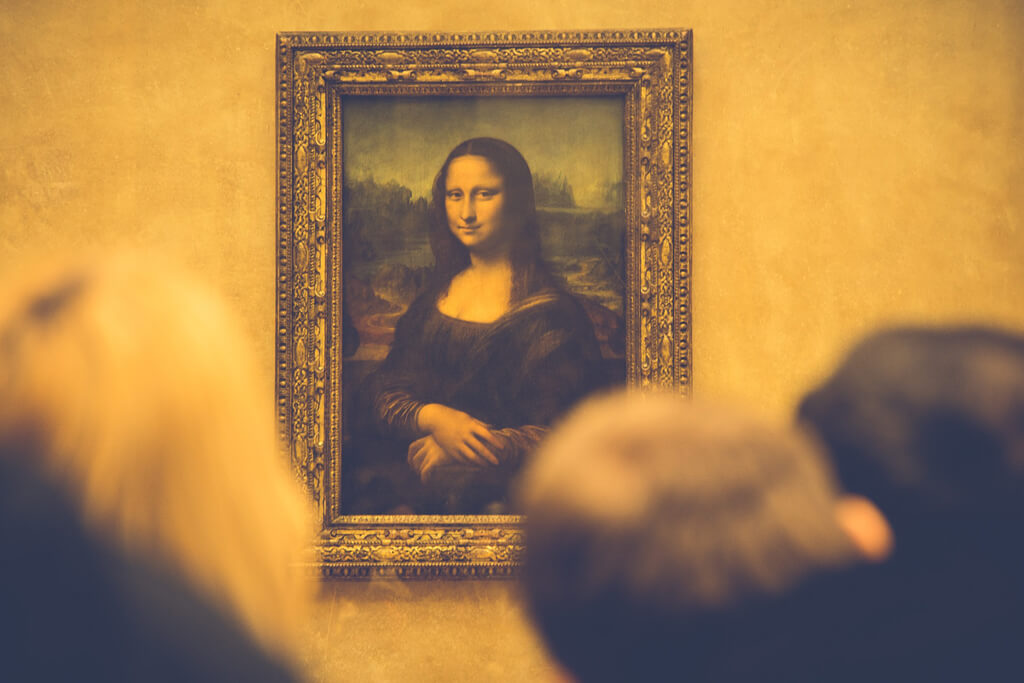
Around the world, Americans are known for their omnipresent grins. But just like the Mona Lisa hanging in the Louvre, the French are not known for their broad smiles. So it was a big culture shock to go from endless smiles from Americans to what Yankees would call resting bitch face in France.
Make Time for Niceties
But while they’re not often smiling, and don’t have a lot of sympathy for whatever curveballs life has thrown your way, the French are extremely polite. While it’s acceptable to walk up to a clerk or attendant in the United States and immediately ask a question, the French expect you to slow down and take the time for proper greetings like hello, have a nice day, and goodbye.
I was reminded of this cultural difference during a frantic rush through Charles de Gaulle airport, trying to find a gate to my connecting flight. I ran up to an airport worker and blurted out (albeit in French), “Where is Gate 24?” Clearly, I was stressed and in a hurry, but he dismissed my question, forcing me to slow down and properly greet him with a “Bonjour” before he would point me in the right direction.
Kisses Instead of Hugs
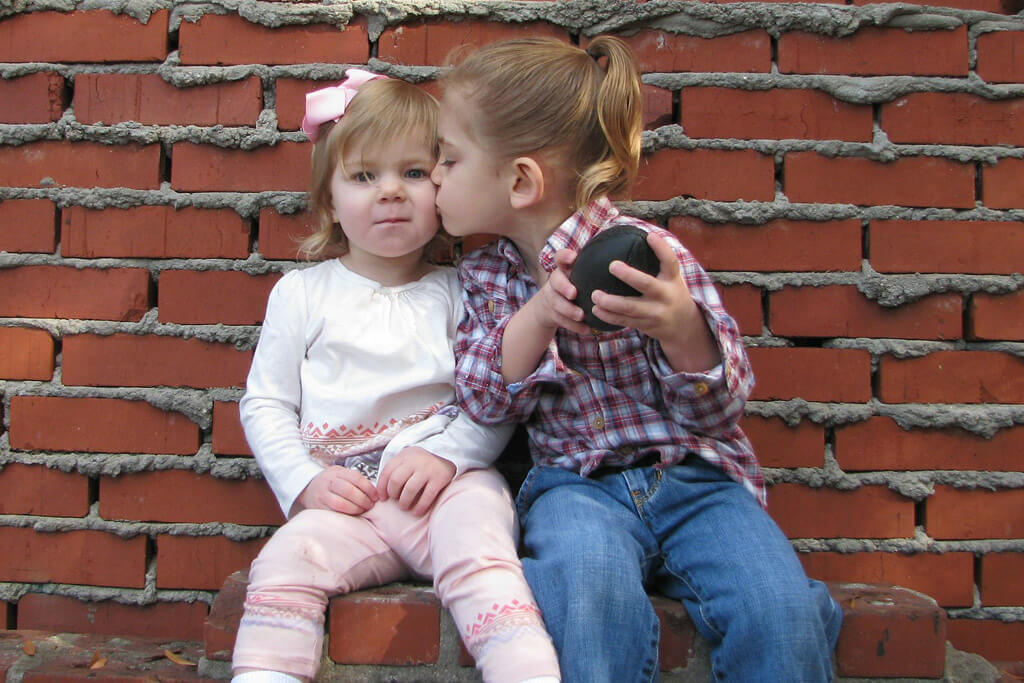
This is one of the main cultural differences between France and America. Americans are huggers. We will regularly hug people we don’t know that well — new acquaintances, co-workers, our mother’s best friend — and save social kissing for very close friends and family members.
But in France, the opposite is true. If you find even a peck on the cheek to be pretty intimate (faire la bise), this is one of the biggest culture shocks for Americans visiting France.
Smoking is Much More Prevalent
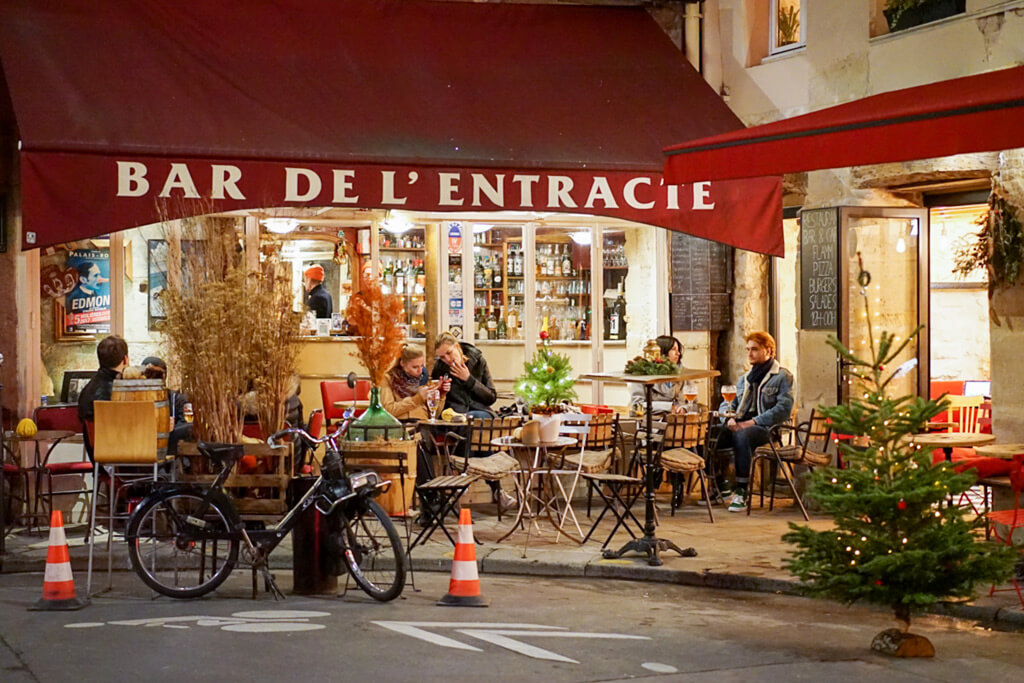
I’m not going to say that everyone smokes, because that’s not true. Plus, I have French friends who don’t smoke that get very upset when they hear Americans spout off gross generalizations about everyone lighting up. That said, with about 30% of French adults smoking daily (compared to less than 15% in the US), be prepared to see more smokers (and smell more cigarette smoke) when you visit France.
Did you experience other cultural differences in France? What cultural differences between France and USA culture gave you the most culture shock as an American in Paris?
|
|


